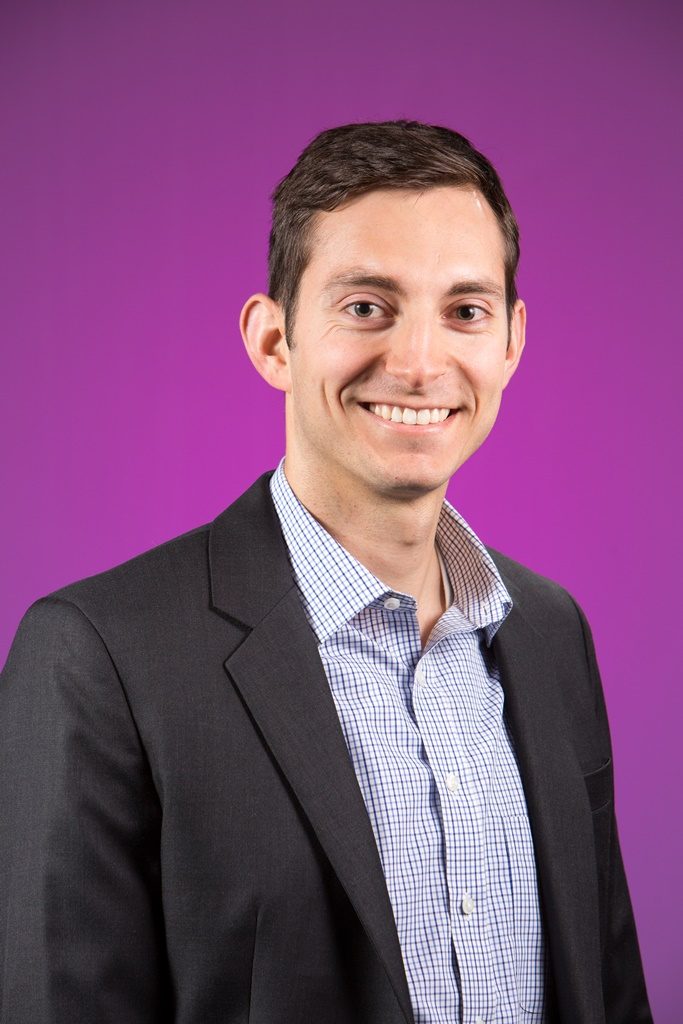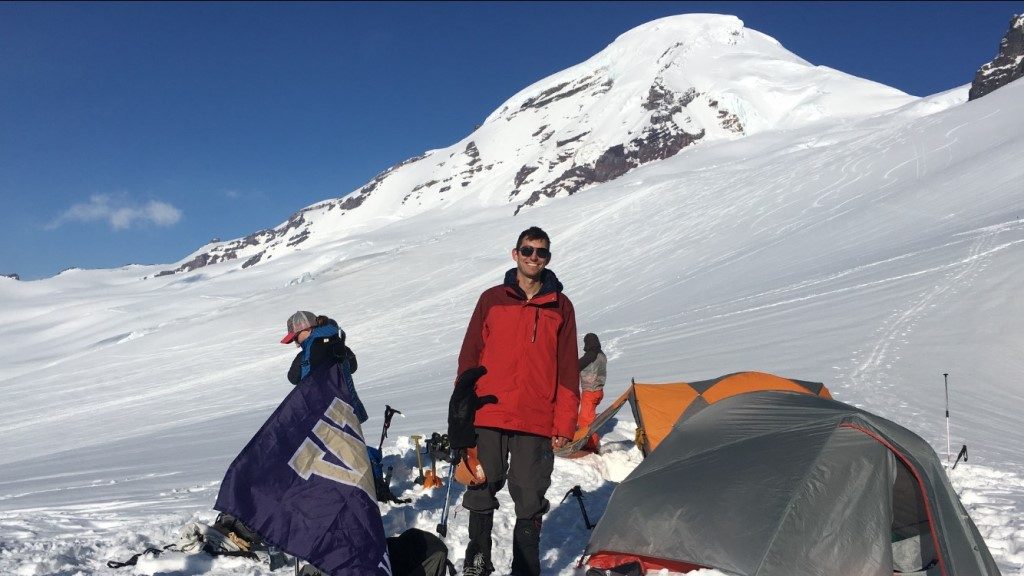Foster Futures: Jonah Rankin
Jonah Rankin (MBA 2018) grew up in Austin, Texas, not far from the University of Texas campus, though he chose the University of Washington for his higher education.
After graduating with a bachelor’s degree in civil engineering from the UW, he worked as an engineer and project manager on waterfront projects that Seattleites utilize every day: seawalls, ferry landings, and floating bridges. “One of my favorite elements of the job,” Rankin says, “was the diversity of function that had me in meetings with executives and five minutes later working with my team on tugboats and barges.”
In the UW Foster School’s MBA Program, he has an engineered a similarly diverse experience. Rankin is a member of the Entrepreneurship & Venture Capital Club, Foster Tech, Global Business Association, Story Corps and Foster Foodies. “My favorite club activity was learning how to make sushi from a Japanese student and his wife in the Foster Foodies club,” he says.
His perspective broadened immensely from a winter quarter studying at the University of Cape Town Business School in South Africa.
And an internship with SSA Marine opened his eyes to the vast opportunities that exist in supply chain and logistics as firms attempt to harness the power of the digital age. “The industry is in the midst of change,” Rankin says. “Amazon, Uber, Convoy—they are all making the transportation system an order of magnitude more efficient by combining software and physical infrastructure working together in an extremely efficient way. SSA showed me the opportunity to lower costs for physical operations and provide transparency for customers. And I saw the potential for artificial intelligence: the supply chain is one of the best and first potential applications of AI because the data exists and in many cases is waiting to be optimized. For example, imagine how much food waste could be eliminated if a system was smart enough to only order the quantity predicted to be needed at each supermarket.”
More on Jonah:
What has been your most impactful experience at Foster?
The most impactful experience I’ve had so far in business school has to be pitching and developing an Alexa skill that allowed Airbnb hosts to improve the guest experience for my Software Entrepreneurship class. In ten short weeks we learned what it takes to develop an idea that will attract investment, assemble a well-rounded team, and build a ready-to-go minimum viable product.
What is your ultimate career aspiration?
My stretch goal is to work for a company that is applying technology to the built environment in a way that is a real game-changer. There are several startups in the Seattle area working on freight forwarding, LED lighting, and affordable housing—all categories where they can make a difference and everyone comes out ahead.
How are you leveraging your Foster experience to achieve this potential future?
I chose electives and real-world experiences that will help me understand the upcoming revolution in artificial intelligence (AI) and machine learning (ML). AI and ML are based in part on regressions and statistics, so I am taking the Tools for Big Data Analysis class to understand the fundamentals of how it works. I am working for a startup, Magic AI, that is working on computer vision for a very specific industry: the equine (horse) market. I recently started working on a project making earth imaging cheap and accessible, part of the democratization of information. These have broad implications for society and huge business opportunities to leverage low-cost information and AI integration. My experiences in an out of the classroom at Foster are equipping me with valuable insight.
What about the Foster culture do you believe will particularly serve you in your career?
The ability to connect with industry and apply skills to current challenges being faced by Seattle-area companies is a huge learning advantage. For example, my mentorships with local executives in the tech and maritime industries gave me concrete examples on the importance of diversity on company boards and collaborative decision-making on teams with diverse backgrounds. Foster exposes me to what I will face in a changing Seattle, a city with organizations of all sizes and structures and a hotbed for cross-pollination of ideas across industries. Foster has gone out of its way to provide experience making me equally comfortable at a two-person startup or a large multinational company.
Do you have a favorite professor or class?
For me, the Software Entrepreneurship course is the pinnacle example of how Foster gives its students an advantage. The class brings together MBA and computer science students on teams to work together; it’s taught by former managing director of Madrona Venture Group, Greg Gottesman, and computer science professor and Gates Chair Ed Lazowska. Our student teams pitch our idea every single week and have a panel of local businesspeople critique us in order to improve on it throughout the quarter. I know of several startups that were formed directly out of that class. I’d add that Thomas Gilbert makes his finance class incredibly engaging and the knowledge from that class was crucial in subsequent electives and my summer internship.
What do you like to do in your free time?
I am a big sailor and went in with two partners to buy a sailboat—it is definitely not an NPV positive project. We love sailing around Puget Sound and up into Canada with our friends and family.
What aspirations do you have beyond work?
Climbing Mt. Rainier with the Foster group this spring. Each year a group of Foster students starts with a local hike and trains on successively larger mountains (Mount Si, Mount St. Helens, Mount Baker, Mount Rainier). Foster students with mountaineering experience volunteer their time to teach others the skills necessary to summit the glaciated peaks of the Pacific Northwest. It was a blast last year and there is truly no better way to bond than being roped together on top of a volcano.
What is a “fun fact” about you?
I was part of the team that built the floating concrete pontoons for the 520 Floating Bridge across Lake Washington, which is the longest and largest floating bridge in the world.
Foster Futures is a series highlighting some of the students who are leading the Foster School into its second century—and themselves into promising careers. The series began in the winter issue of Foster Business magazine.


